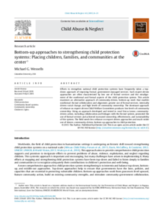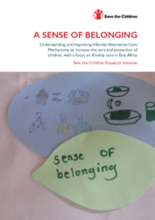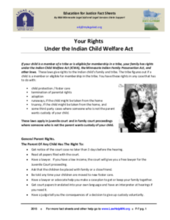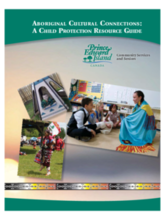Displaying 101 - 110 of 312
This post from the Faith to Action Initiative highlights the work of the Abide Family Center in Uganda, which helps to keep families together.
This article examines an alternative approach to child protection which consists of community-driven, bottom-up work that enables nonformal–formal collaboration and alignment, greater use of formal services, internally driven social change, and high levels of community ownership. The article offers a case example of a community-driven program in Sierra Leone.
The organizations profiled in these case studies have pioneered effective transitions from residential to family-based care.
This paper forms Part 1 of a two-part discussion paper on Indigenous custom adoption.
This report presents research conducted by Save the Children in East Africa. The aim of this research was to build knowledge on endogenous care practices within families and communities, especially informal kinship care, in order to increase the care and protection of children. The research on kinship care was implemented in Ethiopia, Kenya, and Zanzibar.
This fact sheet describes the rights of native children and families under the Indian Child Welfare Act (ICWA) in the United States.
This paper forms Part 2 of a two-part discussion paper on Indigenous custom adoption.
This article describes a group of Elders in the Lax kw’alaams community of British Columbia who provide support and mentorship to the Lax kw’alaams children in care.
This resource guide offers a fairly comprehensive guide to engaging with the Aboriginal community on Prince Edward Island, Canada. It includes a history of the use of residential schools for Aboriginal children, as well as a description of the widespread removal of Aboriginal children from their families and communities for adoption placement in the 1960s through the 1980s.
This six-part study series from the Faith to Action Initiative, Caring for Orphans and Vulnerable Children: A Study Guide for Journeys of Faith, is designed to support small faith group study accompanying ‘Journeys of Faith: A Resource Guide for Orphan Care Ministries Helping Children in Africa & Beyond.’





